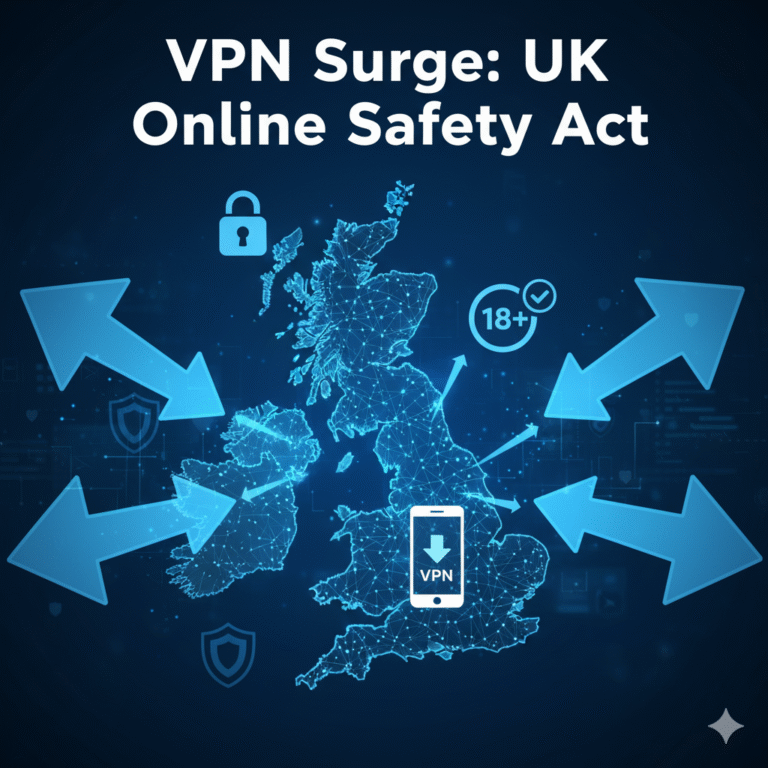Mozilla has begun beta testing Firefox VPN, a free, browser-only VPN feature built directly into the Firefox browser. The experiment aims to give users an easy, no-cost way to hide their IP and encrypt browser traffic without installing a separate app — a step that positions Firefox alongside other browsers offering built-in privacy tools.
What is Firefox VPN (quick facts)
Browser-only: Protects traffic originating from Firefox only — it does not secure other apps on your device.
Free in beta: The current test is free and appears to have no data limits during the trial.
Limited rollout: Access is being granted to a random subset of Firefox users who are invited to try the feature.
How it compares to other options
Firefox VPN sits between two common options:
Built-in browser VPNs (e.g., Edge Secure Network): Like Microsoft Edge’s Secure Network, Firefox VPN encrypts only browser traffic and is designed for convenience and low friction. Unlike some browser VPNs that impose strict data caps, Firefox’s beta reportedly has no limit in testing.
Full-device VPNs (e.g., Mozilla VPN / Mullvad-based services): Full VPN apps encrypt all device traffic and offer features such as split tunneling, multi-device support, and network-level protections. Mozilla’s existing paid Mozilla VPN is a separate, device-wide product—Firefox VPN is intentionally simpler and targeted at users who only want browser protection.
Privacy and data handling
Mozilla emphasizes limited data collection for the browser VPN. According to Mozilla support and early reports, the built-in VPN will log only minimal technical metadata (connection success/failure, bandwidth figures), keep logs linked to accounts for a short retention window (three months in initial guidance), and not log browsing content or visited URLs. That privacy posture is consistent with Mozilla’s public privacy commitments.
Performance and UX
Early coverage indicates Firefox VPN automatically connects to a nearby server for the best latency, and the UI is a single toggle inside the browser toolbar — designed for simplicity rather than advanced configuration. Because it only handles browser traffic, real-world speed impact tends to be lower than device-wide VPNs that route all system traffic, but results will vary by server load and geographic distance.
Security considerations & limitations
Scope limitation: Remember that only Firefox traffic is protected. Email clients, other browsers, system updates, and background apps remain unprotected. For full-device protection you’ll still need a standalone VPN.
Blocked services & geolocation limits: Built-in browser VPNs sometimes restrict choice of country and may automatically pick a nearby location, which can limit the ability to access region-locked content from a desired country. Sites that block VPN traffic may still challenge or block connections.
Operator transparency: Early reporting speculates the service may route through existing privacy-minded partners (some coverage suggests similarities with Mullvad-backed infrastructure used by Mozilla VPN), but Mozilla has not fully confirmed all backend partnerships — users should watch official Mozilla notices for final details.
Why this matters
Embedding a no-cost VPN into a mainstream browser lowers the barrier for privacy protections: casual users who would never install a separate VPN app may now get IP masking and encryption by default. That could raise general awareness of online privacy and nudge other browsers and vendors to expand built-in protections. However, the distinction between browser-only and device-wide protection must be clear to avoid a false sense of complete security.
Expert perspective
Privacy experts often praise browser-integrated privacy features for accessibility but warn they are complements, not replacements, for full VPNs. As one security analyst put it in early coverage: built-in VPNs are an “excellent entry point” for mainstream users — but organizations and privacy-conscious individuals should still evaluate device-wide solutions for comprehensive protection. (Paraphrase of points raised across coverage.
Learn more than ExpressVPN patches IP-leak bug in Windows app
Conclusion
Firefox VPN is a noteworthy experiment: a free, built-in, browser-only VPN that emphasizes easy access and limited data collection. It’s great for users seeking quick privacy boosts while browsing, but it isn’t a substitute for device-level VPNs when you need broad protection. If you use Firefox and see the beta invite, it’s worth trying — just keep the scope and limitations in mind.
Sources & verification
Primary sources used for this article: Mozilla Support (feature details), TechRadar (coverage and analysis), Windows Central (feature comparison), The Register (beta rollout reporting), GHacks (hands-on reporting). (Mozilla Support)



